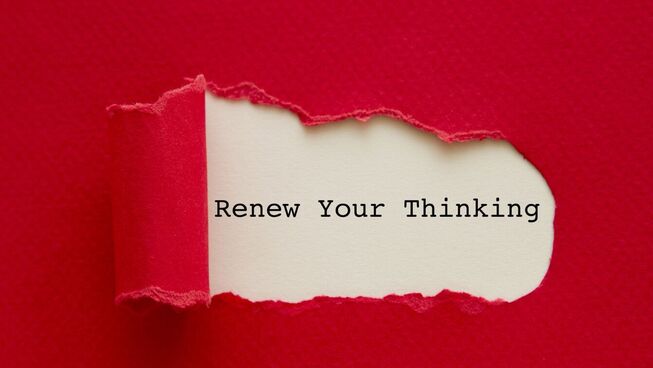
Meet my inner critic
I was running some training the other night. Someone in the audience asked a question. It was a fairly simple and straightforward question. I answered it but found myself pondering over my answer as I drove home. A very clear thought popped into my head: “I can’t believe you got that wrong”.
Meet my inner critic. This is what my inner critic will say to me when I make a mistake in situations where my age and experience means I should know better. I drove the rest of the way home, slightly frustrated with myself.
I know my inner critic lets me off relatively lightly. For some people, their inner critic defines who they are and how they experience the world. It must be horrible to feel constantly berated by the voice in your head.
Our inner critic
In my research I discovered:
Firstly, we all have an inner critic. It’s inbuilt into our nervous system. It’s the internal monologue, the silent voice in our heads, that generally prefers to use the pronoun “you” (as in “I can’t believe you got that wrong”).
Secondly, our inner critic is built upon and through our experiences. For some people, their inner critic uses the same phrases their parents did when they were young.
Thirdly, our inner critic is on the lookout for threats, particularly from other people. “Social rejection is a real threat to our survival, and the inner critic tries to protect us by shaming us before someone else might.” What gets triggered - where our inner critic gets its ammunition - is the same fight-or-flight physiological response we would have to an external threat.
Fourthly, the harshness of our inner critic depends upon a number of factors, meaning we don’t always experience the inner critic in quite the same way. “[The inner critic’s] harshness also can be contextual and dependent on a person’s sensitivity towards being shamed, their mood and the situation.”
Silencing our inner critic
Wouldn’t it be nice if we could silence our inner critic? To find a way to be kinder to ourselves - which could have the flow on effect of helping us to be kinder and less judgemental of others?
Here’s the bad news. Silencing our inner critic is next to impossible, because it’s an automatic, sub-conscious response to threat.
While we may not be able to silence our inner critic, there is a way we can learn to turn down the volume and live with it, so that our inner critic doesn’t end up having the last word.
Making friends with your inner critic
Here are four steps to keep in mind for a better relationship with your inner critic:
Step 1: Acknowledge your inner critic. Rather than ignoring or trying to block your inner critic, recognise that familiar voice, name it and notice what it is saying to you.
In my example, it was: “I can’t believe you got that wrong”.
Step 2: Explore what your inner critic is bringing to your attention. Your inner critic will speak the loudest (and harshest!) when it comes to what’s important to you. Exploring - or interrogating - what your inner critic says can yield some valuable self-insight and lead to personal growth. Says one psychologist:
“Once understood, the inner critic can be useful. It can, for instance, help us lead a values-driven life. Chronically late people, for example, often experience a harsh inner critic who scolds them for looking bad in front of others and being immature. But if they value reliability, they can thank the inner critic for reminding them of this value and start applying time-management skills. In this and other cases, the inner critic brings something important to our attention, and we can use the experience to align our actions with our values.”
With my example, why is it so important to me that I get things right? I reflected on this and realised it’s because one of my values is competency. I don’t like to appear incompetent in the eyes of others. In that training session I wanted to be the “expert” that everyone in the room looked up to. When we explore what our inner critic is telling us, it is as though we are listening to a friend giving candid feedback, which may have some truth that we can acknowledge and grow from.
Step 3: Balance out that conversation. Do you want the last word to be the self-criticism of your inner critic - or self-compassion?
With my example, I can remind myself that I’m not perfect. I will make mistakes. That’s part of being human.
As a person of faith, my greatest source of self-compassion doesn’t come from within me. It’s ultimately not based on how I see myself. This gives me something outside of myself to tap into, particularly when I’m struggling to show myself some compassion.
Paul, one of the early followers of Jesus, wrote these words:
“he [God] saved us, not because of righteous things we had done, but because of his mercy.” [Titus 3:5]
What helps me to have some self-compassion is knowing that my relationship with God doesn’t depend on my performance. It’s based on his mercy, not my competency. If the creator of our universe can accept me on this basis, then I can learn to be a little bit kinder to myself and others.
Step 4: Take time to nurture this friendship. Turning up the volume on your self-compassion isn’t easy and takes discipline. But the effort is worth it. Says one psychologist: “The longest relationship you will ever have is with [yourself] – so would you like to take your self-critic with you, or your compassionate friend?”
Discussion questions
Q. What does your inner critic say to you? Try to think of some specific situations and some specific words or phrases that were used.
Q. What values were at play for you in these situations?
Q. How could you show yourself some self-compassion?


